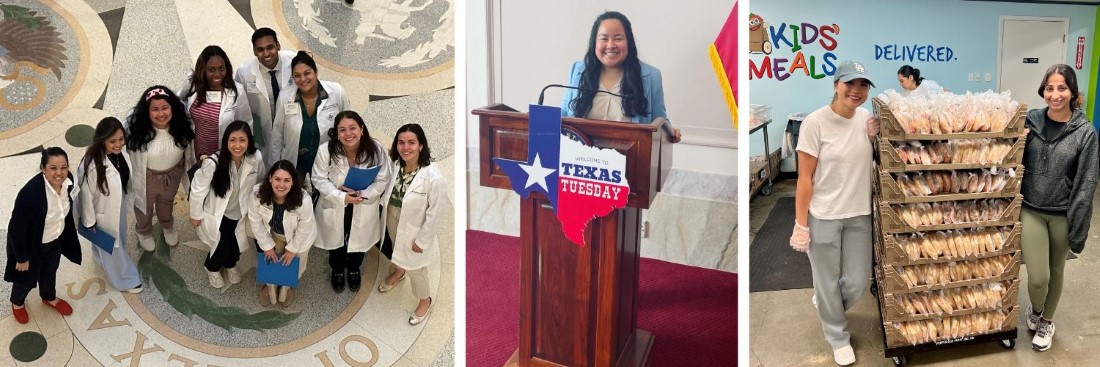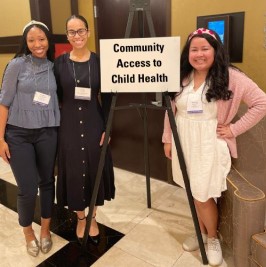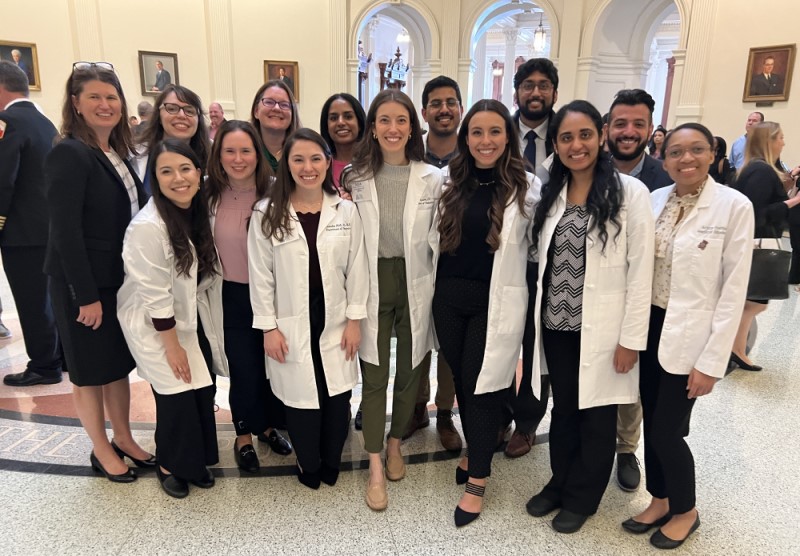Advocacy

CHAP provides residents the opportunities to participate in advocacy at the local, state, and national level as well as connect with and support community partners.
Community Health and Advocacy in Pediatrics (CHAP)
The goal of the month-long CHAP rotation is to improve child health outcomes in the Houston area by increasing pediatric resident understanding of the social determinants of health, providing ways they can get involved with local organizations, and giving them the tools to advocate for their patients, many of whom have low socioeconomic status.
The aims are accomplished over three years:
- Postgraduate year 1 (PGY-1) will include a month dedicated to advocacy training. Interns will also be exposed to home visits of children with special health care needs through the Project DOCC program.
- PGY-2 includes training in the special needs of adolescents at sites such as juvenile detention centers, special education organizations, and early childhood intervention. Residents may also choose to have a dedicated elective month to identify a community partner and start implementation of a project to be completed by graduation.
- By PGY-3, those motivated and interested can take an advocacy elective month to implement and complete the project plan they started during PGY-2. They will be required to present their project locally (at a Department-wide conference), regionally (at a Texas Pediatric Society conference, for example), or nationally.
Uncommon Achievements in Advocacy

L-R: CATCH Grant recipients Alexandria Laws, MD, MPH; Andrea Pinto, MD; and Dominique Dagdag, MD
Advocacy is a major emphasis in the residency program and throughout the Department of Pediatrics, with numerous faculty who lead effective efforts at the state and national levels and readily mentor the next generation to do the same. Residents are equipped to develop and implement their own advocacy project through the dedicated Leadership Track for Advocacy. There is also guidance to secure funding, if desired, such as the prestigious Community Access to Child Health (CATCH) grants from the AAP, awarded to UTHealth Houston residents two years running.
“I am so thankful for the plethora of advocacy opportunities I have been able to partake in thanks to UTHealth Houston. With the support of my advocacy mentors, I have been able to participate in local advocacy work in the Houston community with my AAP CATCH Grant on Caring for Children with Chronic Conditions; state advocacy work at TPS Advocacy Day in Austin; and national advocacy work at the AAP Advocacy Internship in Washington, D.C.”
— Dominique “Nikki” Dagdag, MD
For residents interested in advocacy but not wanting to participate in a track, there are Advocacy Day events and electives available as well as ample opportunities for community outreach and connection to both build a CV and develop well-rounded pediatricians.

Each year, we send a group of residents to the Texas State Capitol to participate in the Texas Pediatric Society Advocacy Day.